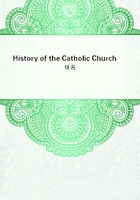
第88章
Recognising the need for an improvement in the education and lives of the French clergy and mindful of the benefits conferred on Rome by the community of St. Philip Neri, the Abbe, afterwards Cardinal, Pierre de Berulle determined to found an Oratory in Paris.[8] The Paris Oratorians were a community of secular priests bound by no special vows, but living under a common rule with the object of fulfilling as perfectly as possible the obligations they had undertaken at their ordination. The project received the warm support of Cardinal Richelieu and was approved by Paul V. in 1613. At the time clerical education in Paris and throughout France was in a condition of almost hopeless confusion. The French Oratorians, devoted as they were themselves to study, determined to organise seminaries on the plan laid down by the Council of Trent, and to take charge of the administration of such institutions. In philosophy the Oratory produced scholars such as Malebranche, in theology Thomassin and Morin, in Scripture Houbigant and Richard Simon, and in sacred eloquence such distinguished preachers as Lajeune and Massillon. The Oratorians survived the stormy days of the Jansenist struggle though the peace of the community was disturbed at times by the action of a few of its members, but it went down before the wild onslaught of the Revolution. It was revived, however, by Pere Gratry in 1852.
The Brothers of Charity were founded by a Portuguese,[9] who having been converted by a sermon of St. John d'Avila, devoted himself to the relief of human suffering in every form. On account of his great charity and zeal for souls he received the surname, St. John of God.
He gathered around him a band of companions who assisted him in caring for the sick in the hospital he had founded at Granada. After his death in 1550 the work that he had begun was carried on by his disciples, whose constitutions were approved by Pius V. in 1572. Soon through the generosity of Philip II. and of the Spanish nobles hospitals were established in various cities of Spain, and placed under the control of the Brothers of St. John of God. They were invited by the Pope to open a house in Rome, and they went also to Paris on the invitation of the queen (1601). At the time of the French Revolution they had charge of forty hospitals, from all of which they were expelled. The founder was canonised in 1690, and named as patron of hospitals by Leo XIII. in 1898.
The Piarists or Patres Piarum Scholarum were founded by St. Joseph Calazansa[10] (1556-1648), who had been vicar-general of the diocese of Urgel in Spain, an office which he resigned in order to betake himself to Rome. Here he began to gather the poorer children for instruction, and as the teachers were unwilling to assist him unless they were given extra remuneration, he opened a free school in Rome in 1597. The school was taught by himself and two or three priests whom he had interested in the work. From these unpretentious beginnings sprang the society of the Fathers of the Pious Schools. The object of the society, which was composed of priests, was the education of the young both in primary and secondary schools. The society was approved by Paul V., and established finally as a recognised institution by Gregory XV. (1621). It spread rapidly into Italy, Austria, and Poland.
Somewhat akin to the Piarists were the Fathers of Christian Doctrine, founded by Caesar de Bus for the purpose of educating the young. The society was composed of priests, and received the approval of Clement VIII. in 1597. Later on it united with the Somaschans, who had been established by St. Jerome Aemilian with a similar purpose, but on account of certain disputes that arose the two bodies were separated in 1647.
The Brothers of the Christian Schools were founded by John Baptist de la Salle[11] (1651-1719). The founder was a young priest of great ability, who had read a distinguished course in arts and theology before his ordination. Having been called upon to assist in conducting a free school opened at Rheims in 1679 he threw himself into the work with vigour, devoting nearly all his energies to the instruction of the teachers. These he used to gather around him after school hours to encourage them to their work, to suggest to them better methods of imparting knowledge and generally to correct any defects that he might have noticed during the course of his daily visits to the schools. In this way he brought together a body of young men interested in the education of the children of the poor, from which body were developed the Brothers of the Christian Schools. At first he intended that some of the congregation should be priests, but later on he changed his mind, and made it a rule that none of the Brothers should become priests, nor should any priest be accepted as a novice. For a long time the holy founder was engaged in an uphill struggle during which the very existence of the institute was imperilled. Distrusted by some of the ecclesiastical authorities, attacked by enemies on all side, deserted by a few of his own most trusted disciples, a man of less zeal and determination would have abandoned the project in despair.